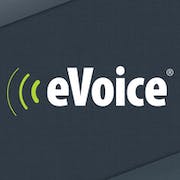Looking for the best business phone system for your company? Our comprehensive guide explores the top options and helps you make an informed decision.
In today's fast-paced business world, communication is paramount. Having a reliable and efficient phone application is essential for any successful business to thrive. Choosing the right one can be a daunting task, especially with the variety of options available. To ensure that your business is equipped with a system that meets its unique needs while keeping costs in check, it is important to comprehend the various types and their features.
In this comprehensive buyer's guide, we will walk you through everything you need to know to make a conscious decision. From the different types of systems, their advantages and disadvantages to the latest features, we've got you covered. So, whether you're a small business owner or in charge of a large corporation, this guide will help you in the long run.
What are business phone systems?
These are communication tools that are specifically designed for companies to enhance their communication processes. These systems include various features that allow businesses to manage their phone calls efficiently. 72% of consumers reach out for help there — making a business phone system, by far, the most important line of communication between companies and their customers.
Some of the common use cases include:
-
Call routing: The phone solutions allow users to route calls to different departments, extensions, or employees, making sure the caller gets connected to the right person for their inquiry.
-
Conference calls: They facilitate setting up conference calls for virtual meetings.
-
Voicemail and call forwarding: These systems enable users to set up voicemail, and call forwarding to ensure that clients and customers can reach the business even if the primary line is unavailable.
-
Interactive voice response (IVR): They also use automated phone menus and IVR to help callers navigate quickly and efficiently.
-
Analytics: By collecting data on incoming and outgoing calls, these systems can provide analytics that help companies monitor the effectiveness of their communication processes.
Business phone systems are commonly used by small, medium, and large companies across various industries, including healthcare, education, finance, and retail, among others. With the growing number of remote workers, they have become even more popular, offering remote employees the ability to manage their calls and collaborate with their colleagues seamlessly.
What are the benefits of using business phone systems?
As a business owner or manager, you are always looking for ways to improve your operations and increase efficiency. One way to achieve this is by investing in a reliable phone solution. These programs are important because they provide several benefits that help streamline communication, improve customer service, and boost productivity.
Here are some of the main benefits:
Improved call quality and reliability
With a business phone application, you can ensure that your calls are crystal clear and not plagued by dropped calls or interference. This can help you avoid miscommunications and improve customer satisfaction.
Advanced features for enhanced functionality
Business phone solutions come with a range of additional features that allow you to do much more than just make and receive calls. These features include call waiting, call forwarding, voicemail, auto-attendant, and more, all designed to help you manage your calls more efficiently.
Multiple lines for increased capacity
If you have a growing business, you need to be equipped to handle an increased number of calls. A business phone app allows you to have multiple lines, which means you can handle more calls and avoid busy signals or long hold times.
Cost savings
This software can save you money in the long run by consolidating your phone services, you can reduce your overall expenses and avoid the need for multiple service providers.
Remote access
With a business phone program that has a voice-over-internet protocol, you can access telephone services anywhere, anytime, as long as you have an internet connection. This means you can stay connected with your team and customers, even when you're on the go. Compared to traditional phone services, a VoIP phone system enables you to save up to 60% on monthly fees. VoIP services are economical, without compromising on the quality of calls.
10 features of business phone systems
These systems have become a fundamental aspect of modern-day businesses. With so many features available, it might be easy to get lost in the sea of options. In this section, we'll highlight the 10 common key features.
-
Call forwarding: This feature allows business calls to be forwarded to another appropriate line when your business line is busy or unattended.
-
Auto-attendant: This is an automated voice system that helps callers efficiently navigate to the right person or department without needing an operator.
-
Voicemail: This feature allows callers to leave a voice message when you or your team are unavailable, ensuring that they can still communicate with your business.
-
Conferencing: Business conferencing is made easier with this tool that allows multi-party conference calls to be managed easily.
-
Call waiting: This feature comes in handy when you're on another call and a second call is coming through. It allows you to put the initial call on hold to answer the second one.
-
Call logs: This feature records incoming, outgoing, and missed calls, allowing you to go back and keep track of your business communication.
-
Caller ID: Knowing the identity of the person calling is essential in business. Caller ID function can help you identify the caller before answering, allowing you to prepare accordingly.
-
Call queuing: When numerous callers are trying to reach your business simultaneously, this feature allows customers to wait in line until someone is available to handle their call, reducing client frustration.
-
Music on hold: This feature provides entertainment for customers on hold, making it a more pleasant waiting experience.
-
Integration with other business applications: Certain business phone software can integrate with other software solutions such as CRM, enabling conversation tracking and better customer support to solve consumer issues effectively.
What to consider when looking for a business phone system?
When it comes to selecting a business telephone system, there are several factors that owners and managers need to consider. In the digital age, an efficient and reliable one is crucial for the smooth running of any business, as it serves as the primary point of communication with customers, suppliers, and other stakeholders.
One of the key factors to consider is the size of your business. If you have a small or medium-sized business, it's advisable to go for a solution that is designed to meet the specific needs of your company. A good one should be scalable and able to expand alongside your business, providing a secure and reliable platform for future growth.
Another consideration is the nature of your business. If your business operates in a high-volume call center environment, you may want to consider a system that comes with advanced features such as call routing, automated attendants, and call recording. These valuable features can help improve customer satisfaction, reduce costs, and streamline operations.
It's also important to consider the cost of the phone application. While it’s understandable to want to keep expenses down, it's important to invest in a solution that is not only affordable but also meets the needs of your business. As such, it’s important to seek out one that provides the best value for your money, with features that can ultimately help you save time, money, and resources.
Another factor to consider is the reliability and security of the telephone software. Your phone software should be able to guarantee the security and privacy of your customer data and should have measures in place to protect against potential security breaches. In addition, it should have backup and disaster recovery mechanisms in place to ensure business continuity in case of unforeseen events such as power outages or system failures.
Lastly, the ease of use and setup of your system should be considered. Ideally, you should choose one that is easy to install, configure, and use. This will ensure that your employees can quickly become familiar with the system and take full advantage of its features. A well-designed system interface should be intuitive, user-friendly, and allow for easy customization.
5 trends for business phone systems
As businesses continue to pivot towards remote work and digital operations, communication is more vital than ever. This has led to a surge in the adoption of cloud-based phone programs, which offer unparalleled flexibility and reliability.
Here are the biggest trends expected in 2023 and beyond:
-
Artificial intelligence integration: With AI becoming more ubiquitous, businesses are looking to integrate it into phone systems in order to improve customer service and automate certain tasks. AI-powered virtual assistants can help with basic inquiries, freeing up human resources for more complex issues.
-
Advanced analytics: As with many industries, data is king. Business phone solutions are no exception. Advanced analytics such as call tracking, call recording, and sentiment analysis can provide valuable insights into customer behavior, agent performance, and overall system efficiency.
-
Video conferencing: Although this tool has been around for a while, many systems are now integrating it seamlessly. With remote work becoming more common, video conferencing has become a vital tool for remote team collaboration and client meetings.
-
5G connectivity: As 5G networks continue to roll out globally, more businesses will adopt the technology. With faster speeds and greater bandwidth, 5G is ideal for businesses that require high-quality video and audio communication.
-
Increased security: As cyber threats continue to evolve, phone system security has never been more critical. Encryption, multi-factor authentication, and other security features are becoming standard in many phone solutions.
Conclusion
In conclusion, business phone solutions offer a range of features that can help organizations operate more efficiently by streamlining their communication to ensure customer satisfaction. By adopting the suggested technologies, businesses can stay ahead of the curve and ensure they are providing the best possible experience for their customers and employees while reducing costs.







